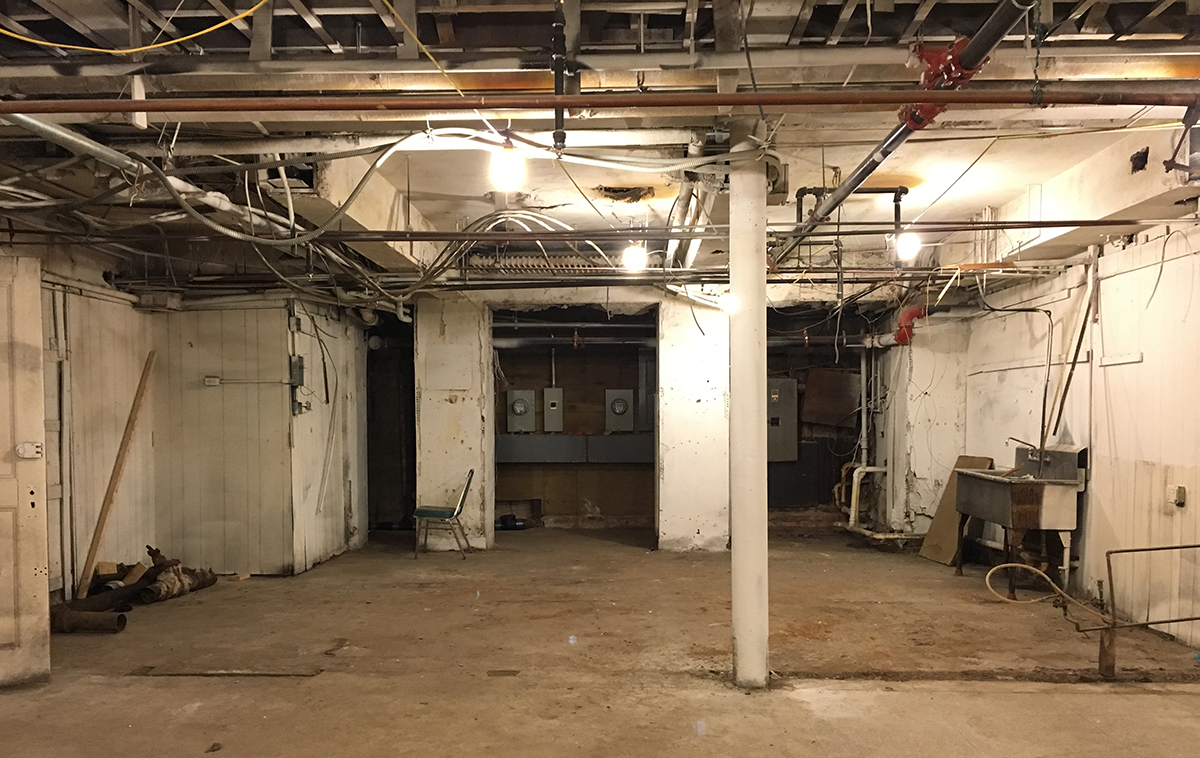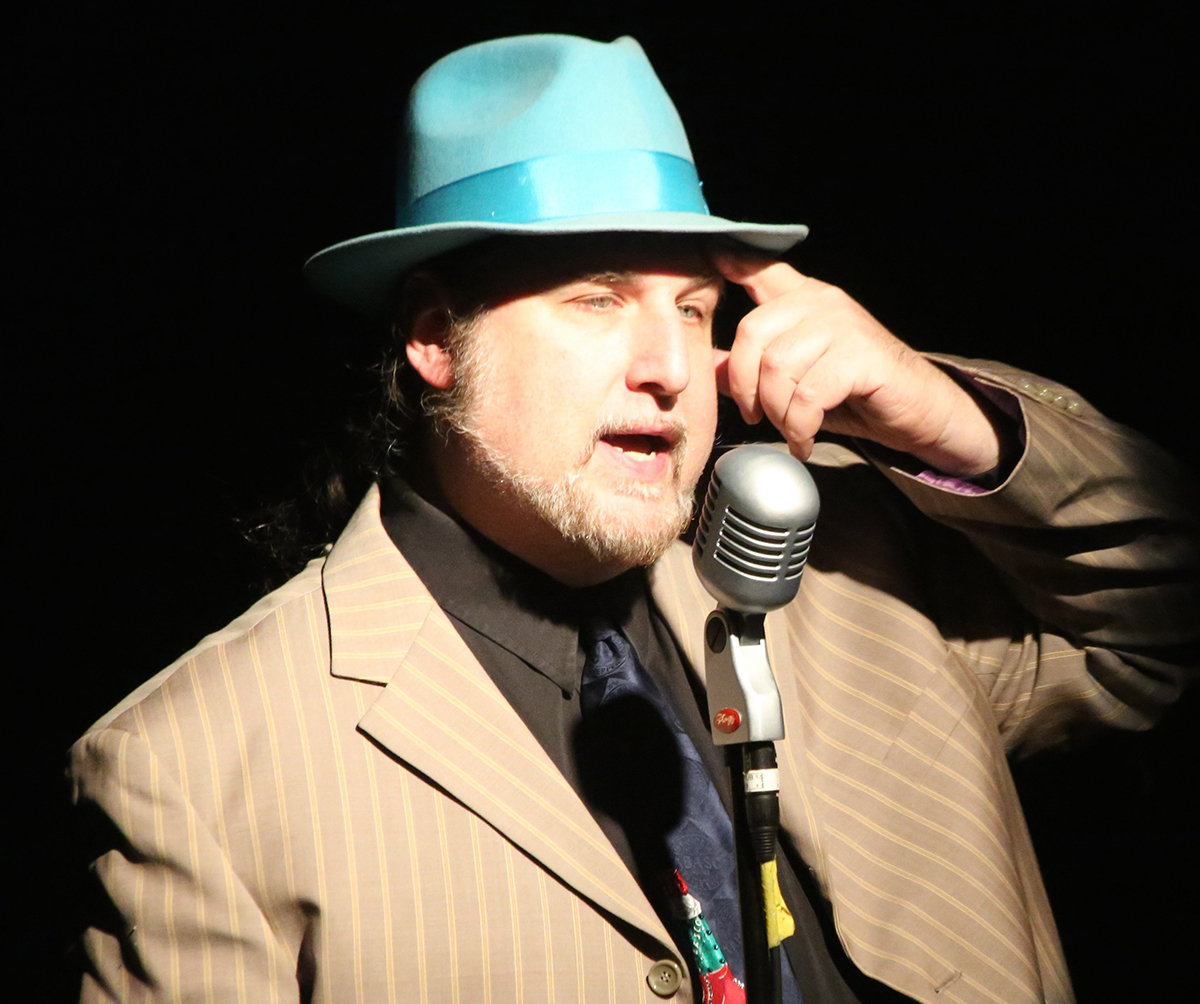A New Performing Arts Venue Is Coming to Central Square

Before Construction / Courtesy of the Thalia Theater
Thalia is the ancient Greek muse of comedy—and the namesake of a new theater about to open in Central Square.
Boston’s performing arts scene may seem to be dominated by several big-name venues such as the Boston Opera House and the American Repertory Theater, but the number of smaller performing arts groups is actually rapidly growing, and many are struggling to find performance space. Enter Scratch, the impresario and cofounder of the Boston BeauTease, a performance group aiming to reinvigorate the local burlesque scene. Scratch, who goes by a longtime stage name, is the owner of the newly founded Thalia.
Burlesque has the reputation of being a glitzy business, but Scratch is a businessman first and foremost—a businessman who’s searching for opportunities. He saw one in Boston’s theater scene.
“I’ve been producing shows in Boston for more than twenty years,” Scratch says. “In that time, the number of small theaters has dwindled, while the demand has increased.”
Looking both to expand his professional horizons and to support smaller, avant-garde artists who could not afford the sky-high rents of Boston’s larger venues, he decided to open a new theater. That was eight years ago. The search hasn’t been easy.
“The idea of not just having another small performance space in the greater Boston area, but having one that was designed by performing artists for performing artists was very important to me,” Scratch says.
Finally, he found the Thalia, a professionally designed space that offered T-accessibility and access to a growing community.
“Central Square really is becoming Cambridge’s theater district,” he explains.
After acquiring the building, the name came naturally, informed by Scratch’s past work, childhood memories, and even his landlords (the Greek American Political Club).
“My initial experience as a producer in Boston was with a Commedia dell’Arte troupe, and Thalia is the muse of comic theatre. I wanted to honor that experience in the name,” Scratch says.
The Thalia also happened to be the name of a movie theater-turned-performing arts venue he frequented as a child. When the movie theater came across hard times, “the neighborhood rallied…The space evolved and became the home of Symphony Space on the Upper West Side, which is an amazing incubator and theater for live performances. They have a remarkable spoken word series. They’ve had some of the greatest musicians in the world. I was proud to see that personal transformation, and it was inspirational. We thought that some of their good fortune might rub off on us.”
Realizing that his landlords would be Greek only confirmed his desire to honor the ancient muse.

Scratch in Performance / Courtesy of the Thalia Theater
Fundraising remains a challenge (the theater recently launched a Kickstarter campaign) but Scratch can already see the Thalia’s good fortune ahead. He expects to have the theater running at partial capability by late October for the Boston BeauTease Halloween show, and completely open by early December. The plans for after the opening?
“We have about twenty people who have reached out to us about using the space once it’s open,” he says.
Such strong interest only confirms the Thalia’s vital role in helping Cambridge to broaden its performance horizons.
“The intent is not simply to house traditional plays and musicals, but also to have the opportunity for people who want to do dance performance or spoken word or magic or any type of live art, even certain types of music shows,” Scratch says.
Scratch’s personal wish list of shows that the Thalia might put on reflects that diversity. He mentions the two-man play, A Couple of Blaguards, which was co-written by Frank McCourt, his “high school English teacher and a very dear friend,” and anything with Sir Ian McKellen, the man who inspired him to join show business.
“Anytime that he wants to come through Boston and perform in a 99-seat theater, we’d be delighted to have him on our stage,” Scratch jokes.
In a broader sense, Scratch hopes to bring more immersive theater experiences to Boston. “To be able to do something that transports and involves the audience is something that I’d really love to have,” he says.
Don’t expect Scratch’s efforts to stop anytime soon. He is already beginning to draw up mental plans for expansion. The wish list includes another space in Cambridge for storage and set building, and later, more theaters—first another one in New England, and after that a third and a fourth around the country. Expanding in that way would allow independent and avant-garde performing artists to widen their platforms in a way that’s never been seen before.
“The ability to book performers in multiple venues, in multiple cities, is something that really only the very largest of production companies can do right now, and we want to create the opportunity for people who aren’t necessarily rock stars or touring Broadway shows.”
Creating more opportunities for small, diverse artistic communities? Sounds like something we can get behind.


